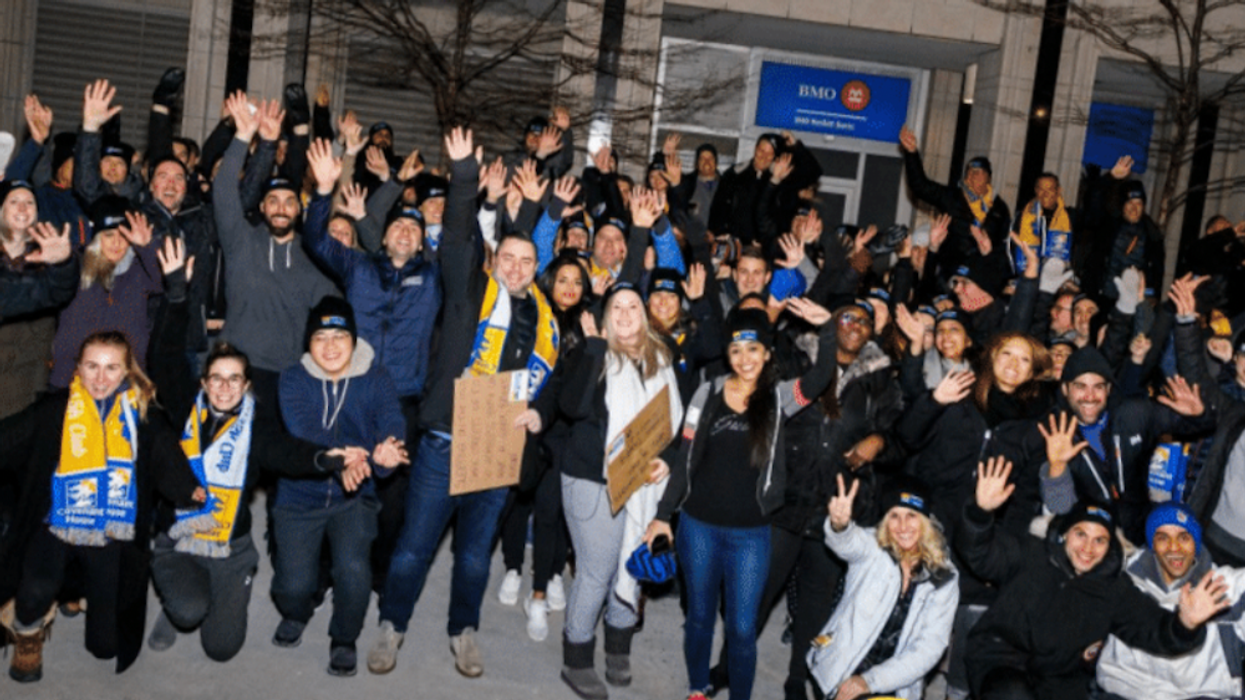This article has been updated to reflect the new date of Covenant House's 2023 sleep out.
In Toronto, concerns over the city’s capacity-strapped shelter system are never ending -- a heed that only grows more urgent as colder temperatures prevail.
According to the Canadian Observatory on Homelessness, in 2021, a total of 18,096 people experienced homelessness in Toronto, 3,519 of which were chronic cases.
The data also finds that 2,742 of those experiencing homelessness rely on the emergency shelter network, which is bursting at the seams; according to Daily Shelter and Overnight Usage data from the City of Toronto, as of November 25th, 24-hour respite vacancy sat at 99.6%, with 24-hour emergency response site occupancy at 98.8%.
The issue of shelter capacity has only bloomed over the course of the pandemic, as an influx of outdoor encampments popped up across the city’s parks. While there’s no specific data on how many more Torontonians were precariously housed during lockdown periods, the City said last May that it and its partner agency staff engaged more than 19,000 times with people living outside in encampments since July 2020.
Despite increased efforts to get more people housed -- the HousingTo 2020-2030 Action Plan aims to approve 40,000 new rental homes, including 18,000 supportive dwellings and 1,000 modular residences -- the fact is, an alarming number of people are forced to take to the pavement. A significant chunk -- 11% -- of those identify as youth, between the ages of 16 and 24.
It’s this segment that Covenant House Toronto seeks to serve. The agency, which is the largest of its kind in Canada, has provided support to youth who are homeless, are being trafficked, or are at risk, for over 40 years.
One of their biggest awareness and fundraising campaigns is the annual Sleep Out Champions Edition, in which participants spend the night on the streets. The immersive and impactful experience drives home the reality of the over 6,000 youth who experience homelessness in Canada every night. Since its launch 10 years ago, the event has raised $3M, with 90% of every dollar put toward programs and services that benefit youth experiencing homelessness and sex trafficking. Next year's event will take place on May 4, 2023; teams can visit ChampionsSleepOut.ca for details and to register.
“The Sleep Out and the Champ Sleep Out are a great help because they raise awareness -- they connect business leaders to the work,” says Mark Aston, Executive Director of Covenant House Toronto. “Nobody’s saying it’s like being homeless, but look, if you’re lying on a cold piece of pavement for six, seven hours, you get an opportunity to reflect on what youth homelessness is really about.”
Aston tells STOREYS that the shelter landscape has “changed quite considerably since the onset of the pandemic,” and in particular for young people who find themselves adversely impacted by resulting increased isolation, mental health issues, and the opioid overdose crisis.
“As you may know, many young people who are facing homelessness are really carrying a lot of trauma. The reason they’re homeless is because of abuse, alienation, and those types of things during their childhood or teen years, so all of those factors have really been made worse over the last two to three years by the pandemic,” he says.
“What we’re seeing at Covenant House Toronto is more complex, more acute need from young people. At the same time, we’re seeing a lot of people in need so the shelter system is full, our shelter is full, and the hotel shelter that we opened up during the pandemic for youth is also full. In addition to acute and complex need, we’re also dealing with capacity issues as well. If there was ever a time to raise awareness and educate on the issue of homelessness in our city, it is now.”





















